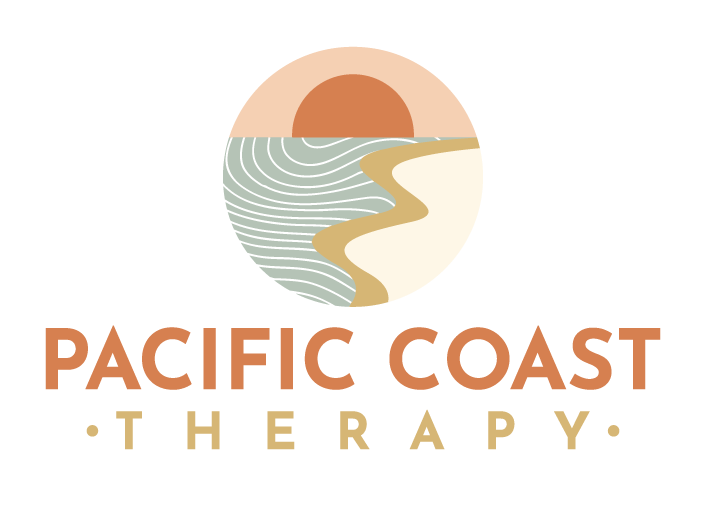Trauma Therapy for Teens in San Jose

How to Know If Your Teen Is Dealing with Trauma
Trauma affects teenagers differently from adults. Because their brains are still developing and they’re working through identity formation and social pressures, trauma can show up in ways that seem confusing or extreme. You might wonder if these changes are “just being a teenager” or something more serious.
Here’s the difference: Trauma responses are tied to specific events (even if your teen hasn’t told you about them). You’ll notice patterns in when symptoms get worse, what triggers intense reactions, and how dramatically behavior has changed from their baseline.
Emotional and Psychological Signs
These are the internal experiences your teen might be having, even if they can’t or won’t talk about them:
- Flashbacks and intrusive memories: Your teen might suddenly zone out, seem terrified for no apparent reason, or say things like “I can’t stop seeing it” or “It keeps coming back.” These go beyond ordinary bad memories. Your teen experiences the traumatic event as if it’s happening again right now.
- Nightmares that wake them up multiple times a night: The nightmares might be directly about what happened, or symbolically related (being chased, trapped, unable to move). Sleep becomes something they dread.
- Dissociation and “spacing out.”: You might notice them staring into space for extended periods, having memory gaps about recent events, or seeming disconnected from what’s happening around them. Some teens describe it as “feeling like I’m watching myself from outside my body” or “nothing feels real.”
- Intense fear responses that seem out of proportion: A door slamming makes them jump and shake. Certain sounds, smells, or situations trigger panic reactions. They might refuse to go places they used to enjoy without being able to explain why.
Emotional numbness: Instead of crying or expressing sadness, your teen might seem emotionally flat. They might say they “don’t feel anything anymore” or that they “can’t care about anything.”
Behavioral and Social Changes
These are the outward changes you can observe in how your teen acts and interacts:
- Extreme avoidance of trauma reminders. They refuse to drive after a car accident. They won’t talk about a person who hurt them. They avoid entire locations, activities, or social situations that could trigger memories. This goes beyond normal preferences; it’s driven by intense fear or discomfort.
- Dramatic withdrawal from friends and activities they once loved. This isn’t teenage moodiness. Your previously social teen stops responding to friends completely. The athlete who loved their sport suddenly refuses to go to practice. They isolate themselves in ways that seem extreme and persistent.
- Hypervigilance and constant scanning for danger. They always need to sit with their back to the wall. They check locks multiple times. They startle easily and seem unable to relax, even at home. This “on guard” state is exhausting and makes it hard for them to focus on anything else.
- Regressive behaviors inappropriate for their age. A 15-year-old suddenly wants to sleep in your room again. They use baby talk or become excessively clingy. They might have accidents or struggle with tasks they’ve mastered for years. This regression happens because trauma makes teens feel unsafe and overwhelmed.
- Risky or self-destructive behaviors. Some teens respond to trauma by taking dangerous risks, engaging in self-harm, or seeking situations that reenact the trauma. This isn’t “acting out.” It’s their way of trying to process or control what feels uncontrollable.
Reenacting trauma through play, art, or conversation. Younger teens especially might draw violent scenes repeatedly, play out traumatic scenarios with toys, or bring up the traumatic event (or themes related to it) obsessively in conversation.
Physical Responses to Trauma
Trauma lives in the body, not just the mind. Your teen might experience:
- Physical reactions to trauma reminders. When something reminds them of what happened, they might suddenly feel nauseated, get a headache, start shaking, or experience rapid heartbeat and difficulty breathing. These aren’t “all in their head.” They’re real physical responses.
- Chronic pain, stomachaches, or headaches with no clear medical cause. Doctors might run tests and find nothing wrong, but your teen is genuinely experiencing pain. Trauma can manifest as physical symptoms, especially when emotional expression feels unsafe.
- Changes in eating patterns. Some teens lose their appetite entirely or feel nauseated around meals. Others eat compulsively to cope with difficult emotions. Either extreme, especially if sudden and persistent, can be trauma-related.
- Sleep disturbances beyond occasional bad nights. Difficulty falling asleep because they’re afraid to be vulnerable. Waking repeatedly in terror. Sleeping too much as a way to escape. Sleep becomes either impossible or the only place they feel safe.
- If you recognize three or more of these signs in your teen, specialized therapy can help. These responses aren’t character flaws or choices. They’re how the brain and body react to overwhelming experiences. With support, these symptoms can significantly improve.
What Trauma Therapy Actually Looks Like for Teens
Parents often worry about what happens in therapy. Will the therapist force your teen to relive painful memories? What if talking about it makes things worse? Understanding the process can ease these concerns.
Therapy for teens dealing with trauma follows a careful, phased approach that prioritizes your teen’s safety and emotional stability above everything else.
Building Safety and Stability First
We don’t start with the trauma itself. The first phase focuses on helping your teen feel safe enough to begin the work. This means:
Your teen learns practical skills to manage overwhelming emotions. We teach grounding techniques (using the five senses to stay present), deep breathing exercises that calm the nervous system, and ways to recognize when they’re becoming activated. These aren’t just coping mechanisms. They’re tools your teen will use throughout their life. We help them understand that their reactions are normal responses to abnormal events. They’re not “broken.”
This phase typically takes 4-6 sessions, but we adjust based on your teen’s needs. We won’t move forward until your teen has the tools and stability to process what happened safely.
Processing Traumatic Memories with EMDR
Once your teen feels ready, we use trauma-specific techniques:
EMDR (Eye Movement Desensitization and Reprocessing) helps teens process traumatic memories without talking about every detail. While thinking about the event, teens use bilateral stimulation (eye movements or tapping) to help the brain reprocess the memory. Teens often report the memory feels more distant afterward.
Rebuilding Confidence and Connection
The final phase focuses on helping your teen reconnect with life and relationships:
Social skills and communication often suffer when trauma isolates teens. We work on expressing needs clearly, setting boundaries, and rebuilding friendships. Many teens need help learning how to trust again without being hypervigilant or withdrawing completely.
Identity work helps teens separate their trauma from who they are. Trauma can become such a huge part of their self-concept that they forget they’re more than “the person that happened to.” We explore their interests, strengths, and goals beyond their trauma history.
Family communication and parent coaching ensure that progress in therapy continues at home. We might include you in sessions (with your teen’s permission) to practice new communication patterns, or work with you separately to understand your teen’s triggers and how to respond helpfully. You’re not expected to be a therapist, but understanding what your teen is working on makes home feel safer.
Prevention and future planning prepare teens for potential setbacks. What will they do if they have a nightmare? How will they handle anniversary reactions? What resources do they have when they feel triggered? Having a plan reduces anxiety about managing symptoms long-term.

Schedule a Consultation Today
If your teen is showing signs of trauma, early support makes therapy more effective. Schedule a 15-minute consultation to discuss your teen’s specific situation, understand what therapy involves, and meet a therapist.
You don’t need all the answers. You just need to know something isn’t right and that you want to help.
Trauma changes teens, but with the right support, healing is possible. Your teen deserves to feel safe, connected, and hopeful again.
Frequently Asked Questions About Teen Trauma Therapy
What types of trauma do you treat in teens?
How long does therapy for traumatized teens typically take?
Will my teen have to talk about every detail?
What if my teen refuses to go?
How involved will I be as a parent in my teen's therapy?
Parent involvement is important to us at Pacific Coast Therapy. After your teen’s first session, we require one parent meeting to understand what’s happening at home, school, and socially. We encourage at least monthly check-ins where you can share observations or concerns about changes in mood, behavior, or functioning.
Confidentiality still applies, so we can’t share session details unless your teen gives permission. This protects the therapeutic relationship. Ongoing involvement might include monthly check-ins to share your perspective, periodic parent sessions for coaching and strategies, family sessions when working on communication (with your teen’s agreement), or guidance on supporting therapy at home. Your perspective helps us see the full picture and support your teen more effectively.


Get Started
The Pacific Coast Therapy team is passionate about helping people thrive. If you're ready to take the next step in your life, contact us today to schedule a free 15-minute phone consultation. One of our caring therapists can offer support. To start your therapy journey, please follow these simple steps:
1
Contact Us
Text, call, email, or fill out the form at the bottom of the page in order to contact us.
Meet With A Caring Therapist
Take part of a free 15-minute consultation with a therapist to see if it is the right fit.
3
Begin The Road To Healing
Start meeting on a regular basis and conquer your goals.
Get Started

